June 2023
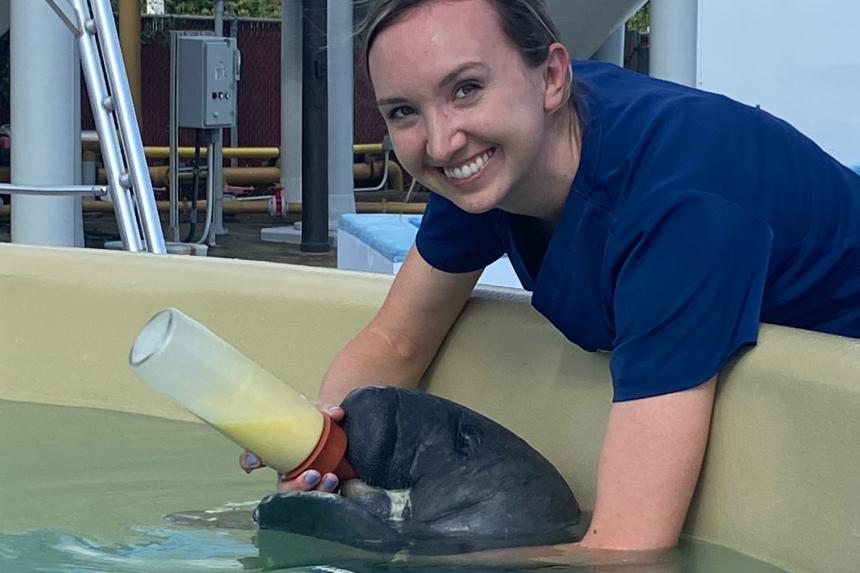
News
June 29, 2023
Cornell alumna Tatiana Weisbrod, DVM ‘17, once thought medical school was in her future, until she came across the Cornell AQUAVET® program, which changed the trajectory of her career.
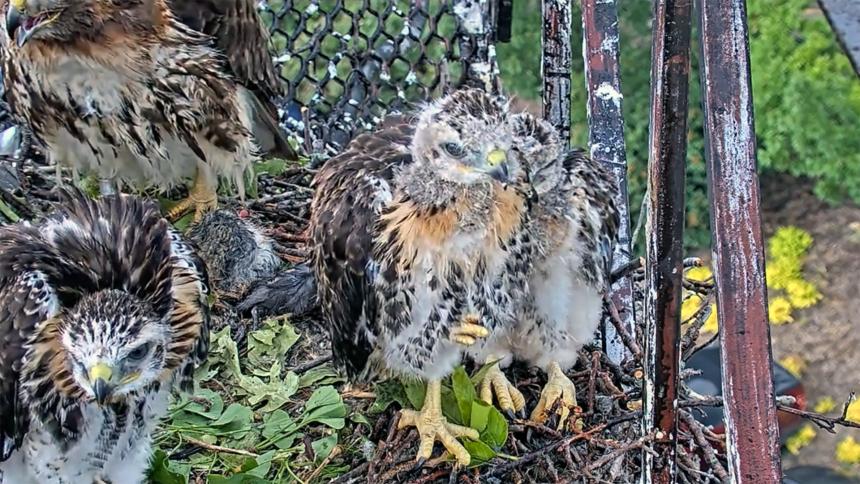
June 27, 2023
Three nestlings from the Cornell hawks' nest were treated for maggots in their ears at the Janet L. Swanson Wildlife Hospital and were then placed back safely in their nest.
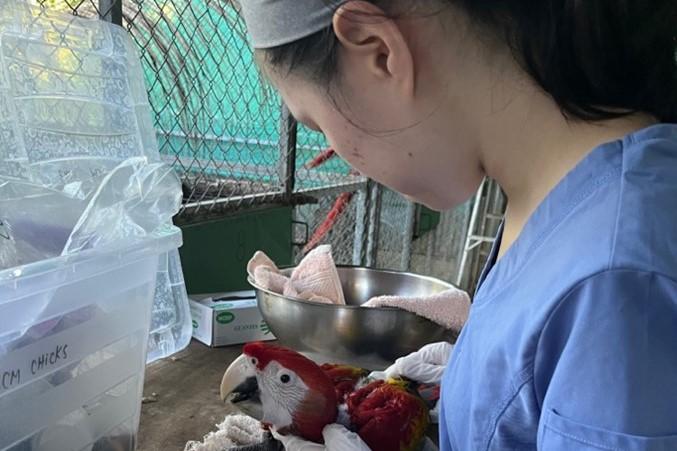
Blog
June 26, 2023
Anyone who knows me will know that I am an avid bird lover. From backyard chickens to falconry raptors, I love them all. But one group of birds holds a special place in my heart: the psittacines, more commonly known as the parrot family....
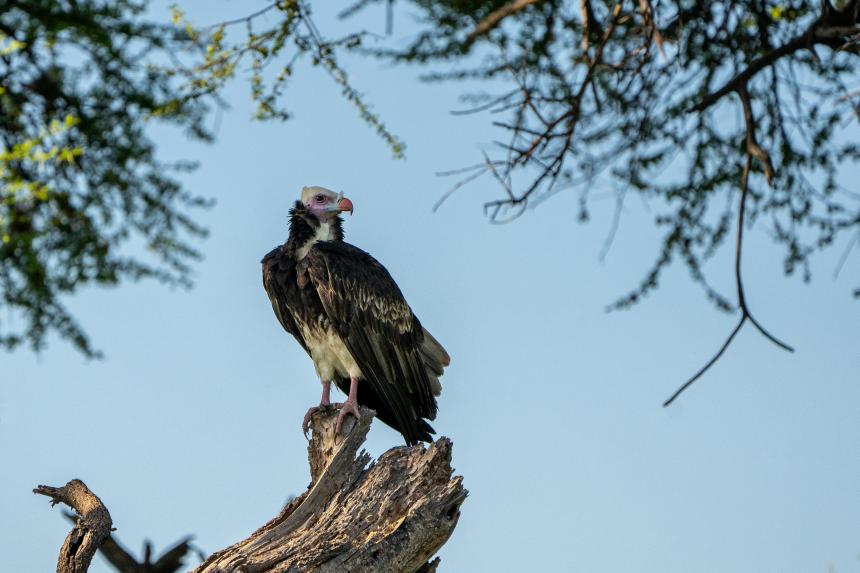
Blog
June 23, 2023
With the help of Dr. Martin Gilbert, Cornell veterinary student Christel-Remy Kuck, DVM '24, lends a hand to struggling vulture populations at VulPro, South Africa through Cornell University College of Veterinary Medicine's Expanding Horizons International Education Program.
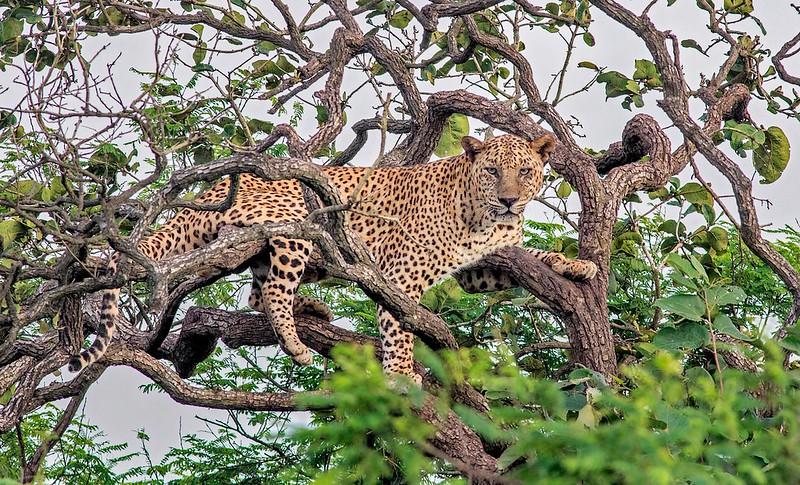
Blog
June 22, 2023
Welcome to the Living with Leopards Project student intern blog. Join us as we explore the implications of human-leopard conflict in the Himalayan foothills, reporting from Chitwan National Park, Nepal.
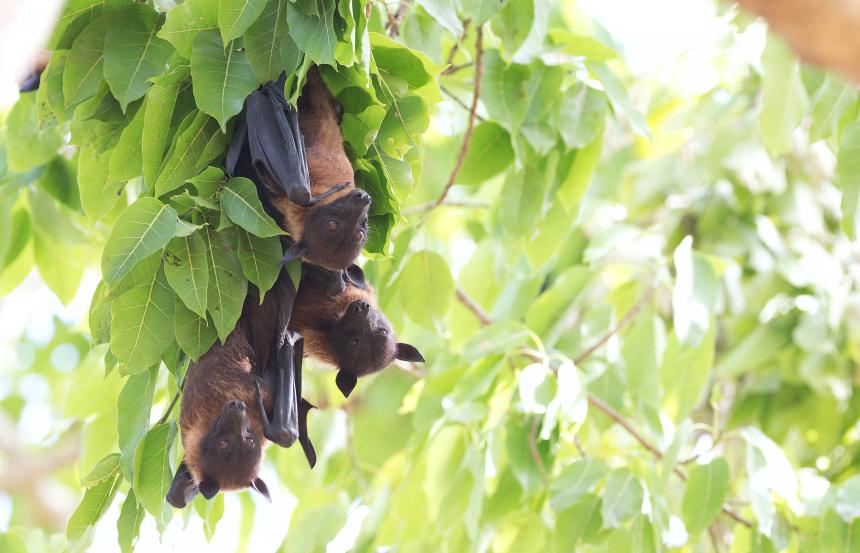
June 16, 2023
Experts from the Cornell Wildlife Health Center and the Wildlife Conservation Society have partnered on a new analysis focused on how pandemics can be prevented in the future. One basic solution may lie in a global taboo against harming/disturbing bats and their habitats.
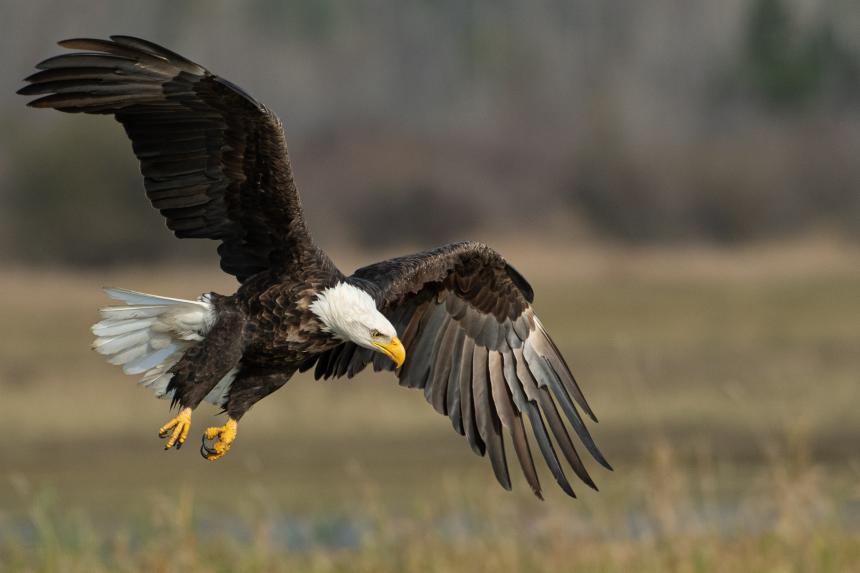
For Your Information
June 13, 2023
While the recent population recovery of bald eagles in New York State is a conservation success, evidence from necropsies suggest that ingested lead from ammunition fragments is causing morbidity and mortality to wild eagles.
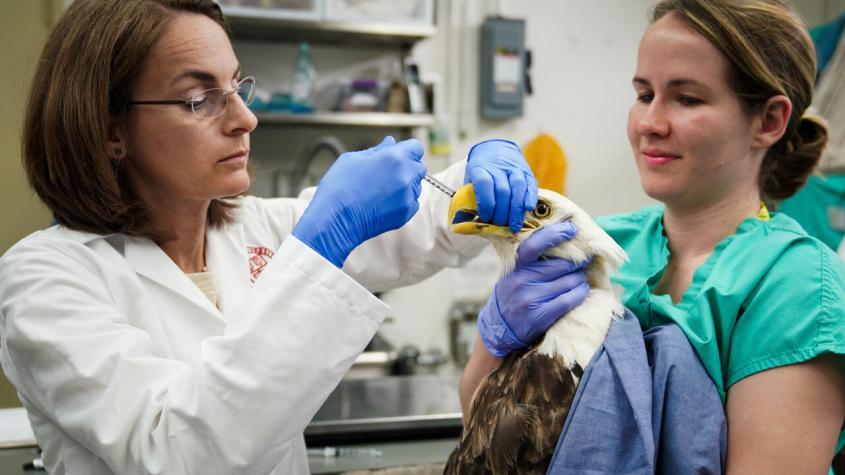
June 09, 2023
A bald eagle had been hit by a car the night before arriving at the Janet L. Swanson Wildlife Hospital and was not doing well. A month later, however, she was ready to be discharged and transferred to a licensed wildlife rehabilitator.

For Your Information
June 05, 2023
In this new paper led by Cornell, researchers conclude that a global taboo is needed whereby humanity agrees to leave bats alone, let them have the habitats they need, and live undisturbed by humans to reduce the risk of another pandemic.
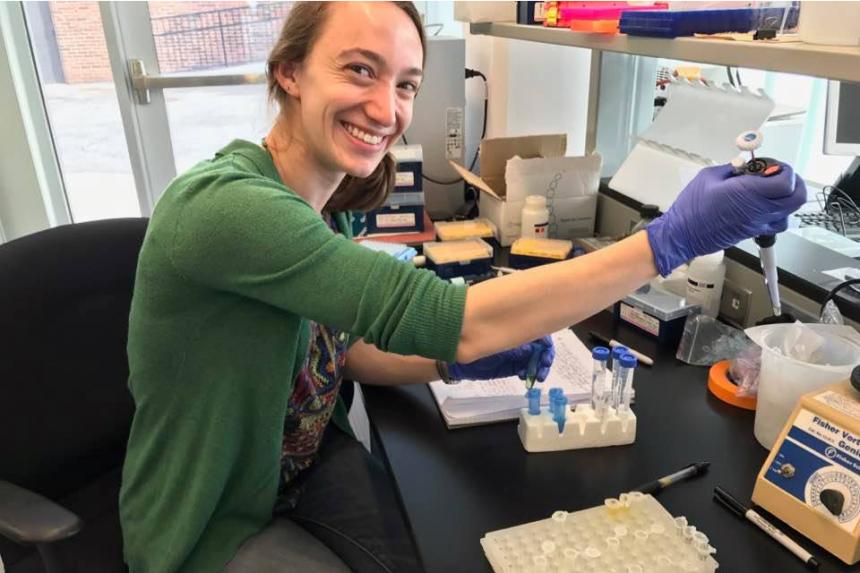
News
June 05, 2023
Dr. Alyssa Kaganer began working with wildlife as an undergraduate student at Cornell University in 2012. She recalls “stumbling” into research at the Cornell Wildlife Health Lab, where she was mentored by Drs. Krysten Schuler and Elizabeth Bunting.
